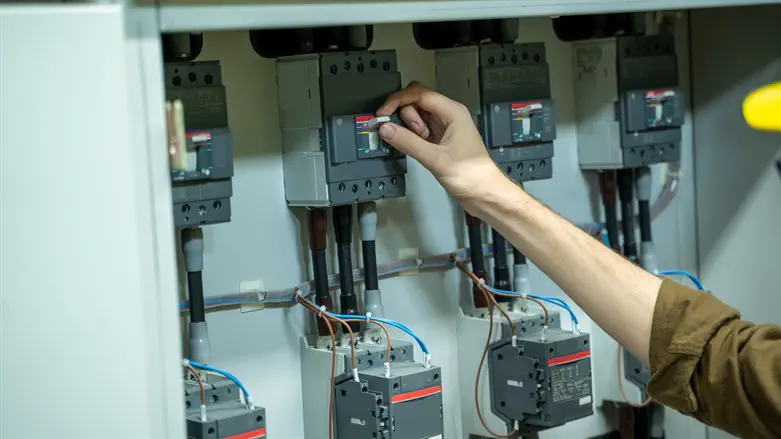
The Israel Electric Corporation (IEC) on Tuesday announced that the price of electricity for home consumers will rise approximately 3.8%, beginning in January 2025.
The price hike will take effect parallel to the rise in VAT, causing consumers to pay a sum total of 4.7% more in electricity than they do currently.
According to IEC, the price hike is needed due to war-related expenses, as well as electricity development.
At the same time, the IEC noted that efficient power plants are expected to begin operating to manufacture gas which will replace the expensive and pollution-inducing coal plants; this, together with the sale of the Eshkol Power Plant, allowed the hike to be moderated.
Israeli consumers have seen repeated increases in the cost of electricity, while the Palestinian Authority and Gaza, both of which use electricity from the Israeli grid, generally do not pay for their electricity usage, transferring the burden of payment to the Israeli citizen.
Earlier this year, the Finance Ministry and Palestinian Authority representatives reached an agreement in which the Authority will pay its debt of two billion NIS to the IEC.
The debt ballooned over the course of many years, during which time the Palestinian Authority refused to pay for electricity produced by the IEC and which was transferred to PA providers and electricity lines. For years, attempts were made to collect the debt, but the PA denied its existence and claimed that the Israeli electricity does not reach PA-controlled areas.
In Israel as well, there were many who believed that the debt could not be collected, since the company responsible for providing electricity to PA-controlled areas was not itself seen as under PA control, and therefore the PA could not be held responsible for its debts.
At the headquarters of the Coordinator for Government Activities in the Territories (COGAT), officials also opposed the debt's collection, claiming that such a step would endanger the PA's economic stability.
However, earlier this year, due to a policy change implemented by Finance Minister Bezalel Smotrich, the situation has changed: At Smotrich's instruction, Israel began deducting the cost of the provision of electricity to the PA from the taxes it collects on the PA's behalf and transfers to it. This step prevented the PA's electricity debt from growing, but did not resolve the matter of the previous debt, which amounted to two billion NIS.
Recently, this problem was also resolved: The Israeli Finance Ministry found a way to hold the PA responsible for the debt, while at the same time meeting with PA representatives and showing them that the Israeli electricity lines do reach Arab populations in Judea and Samaria.
With Smotrich's support, the Finance Ministry clarified to PA officials that there are two ways to pay off the debt: Creating a payment plan in cooperation with Israel, or unilateral deductions from the monies Israel transfers to the PA. The PA officials chose to create a payment plan, and over the past five months, 50 million NIS were deducted from the tax transfers in repayment of the debt.
The deductions were scheduled to continue over the course of five months, until a sum of half-a-billion NIS is repaid. In light of this, the Finance Ministry in July transferred 300 million NIS to the IEC. The Ministry is now working to arrange the repayment of the rest of the debt, part of which is comprised of interest and other fees.
